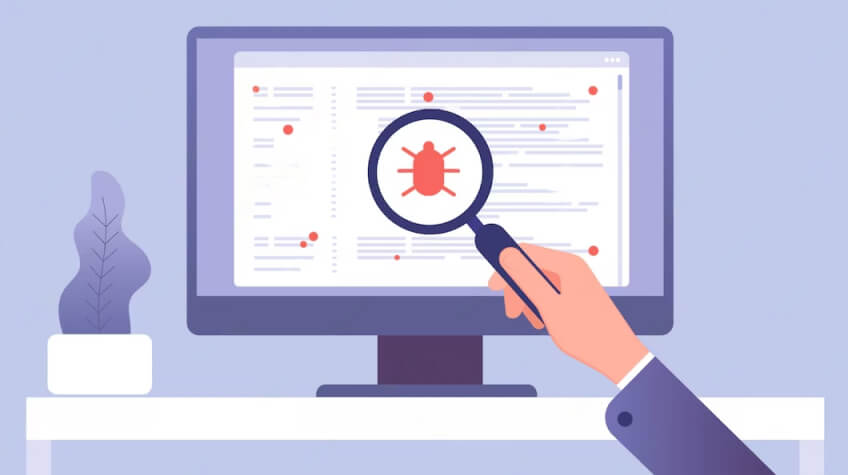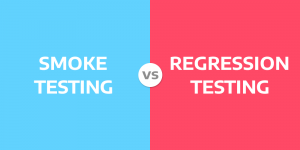
Bug can be very well defined as an error found in the software. During the designing and building process, a programmer tends to make several errors termed as bugs. Bug can come out in the way of coding error in a computer program. Bugs often leads to invalid output of the process which then gives out negative results. Bugs results in the software majorly due to Human Errors in the source code or its design.
How to Track a bug?
A bug can be tracked easily by considering certain points which includes:
1. Following the data with accurate identification of the location of data application in order to find the bugs.
2. Challenge the features so as to check it workable conditions.
3. Don’t just completely rely on the testing tools.
4. Be consistent with the testing process, and keep on doing it on regular basis as that will only take you to find new bugs every time you test.
During the final testing process of software, the results don’t often come out the same when compared to our expectations which then results into a bugs. These bugs can somehow be eradicated if proper action is taken in the initial stages.
Best Bug Tracking Software
Software’s can help you in this case and will provide you with a hassle free solution to Bug Eradication.
1. Plutora

Plutora is the software that has been introduced in the modern times. It supports the entire software testing process for all types of development methodologies. It aids in the consolidation of testing design, planning, manual and automated execution, defect tracking and progress reporting which ultimately leads to improvement in the work efficiency. It can be customised as per individual needs and demands.
For more info, visit:- Plutora
2. Trac

Python lead to the development of Trac well defined as an open source issue tracking system. On integrating Trac with SCM, it can be used for the purpose of browsing through the code, to view history and viewing the changes too. It is majorly used as an issue tracking tool for software development projects and is considered to be a version of wiki. It is accessible on multiple platforms like Linux, Unix, Mac OS X, Windows etc.
It is open sourced and can be obtained from: Trac
3. Bugzilla

Bugzilla is one of the most popular tracking software which has been adopted by lot of companies. It is featured with Web Based Interface and is convenient to be used. It has got lot of benefits which makes it usable by majority of the companies. With open source and free to use facility the demand of Bugzilla is now on a hike.
For more info, visit: Bugzilla
4. Jira

Jira is featured with easy to use framework has made it quite popular. It is majorly incident management tool but can even be used to track bug in the software. Jira helps in organizing and management of the team issues making it a priority with an up gradation in the project. It sets a perfect environment for the developers as it leads to the integration of code development. It highly supports the Agile Projects.
A 7-day free trial can be obtained at: Jira
5. Fogbuza

Fogbuzs often refers bugs as cases and is termed as Web Based Bug Tracking System. It aids with creating list and assigning work as per the cases created. It is very easy and convenient to use with all the required features. Fogbugz also lets you create wikis which can then be accessed by the common people too. Despite of being a commercial product it does not costs much.
You can try it free for 45 days at: Fogbuza
6. Mantis

This tool is easy to use and understand after you have gained experience in using any of the softwares. It also helps in integrating the chat, time tracking, wiki, RSS feeds and many more. It has got its own mobile version too along with a web application. It is workable with the databases including MySQL, PostgreSQL, MS SQL. It is an ope source tool and is featured with E – Mail notification, reporting with reports and graphs, supporting the custom fields, makes multiple projects possible at once, and lastly it supports unlimited number of users, issues and projects too.
For more infomation, visit: Mantis
Conclusion
The bug tracking software landscape is constantly evolving. With new features and integrations emerging, it’s crucial to stay informed. Keep exploring different tools and best practices to ensure your team remains efficient and your software remains bug-free.






